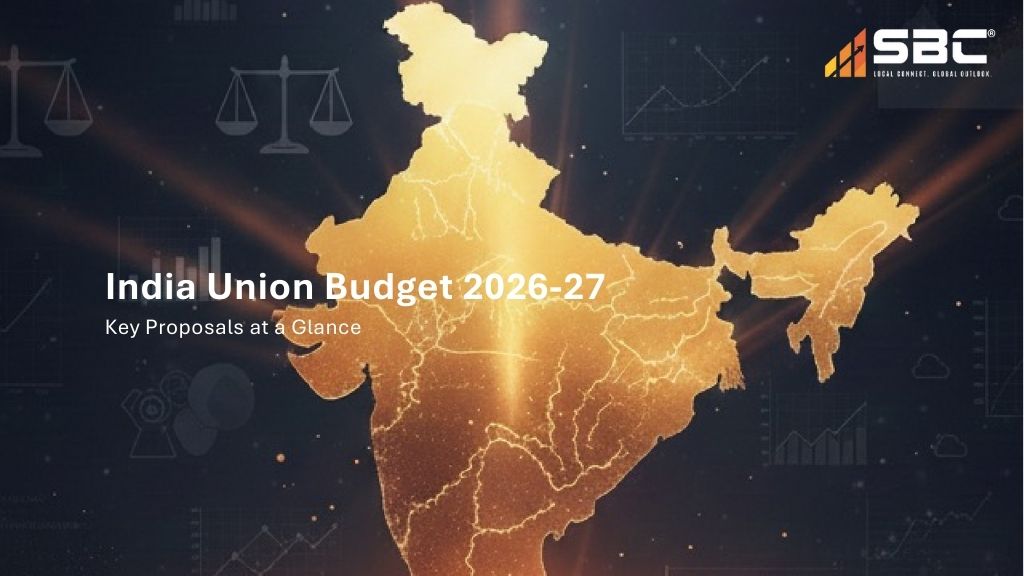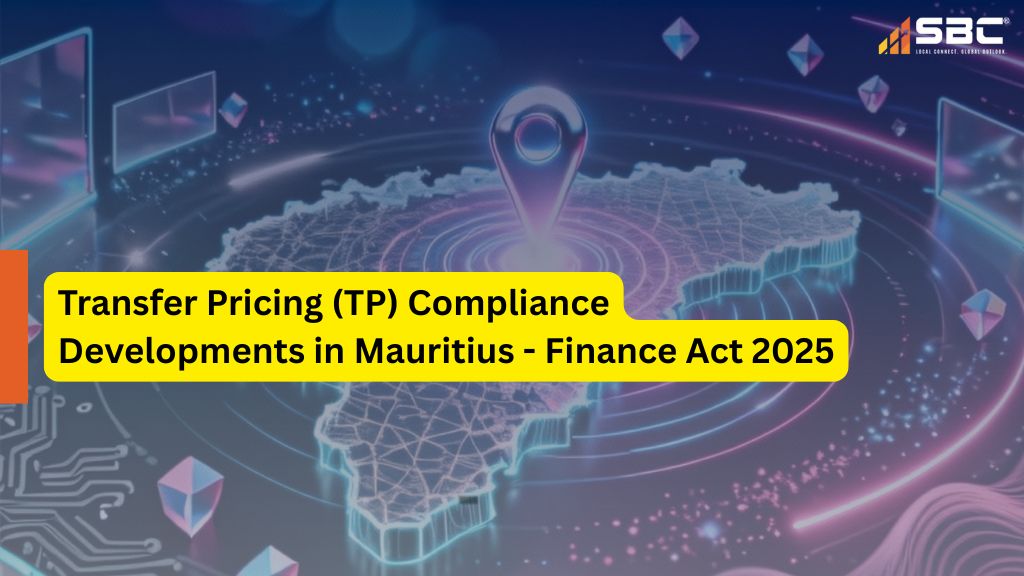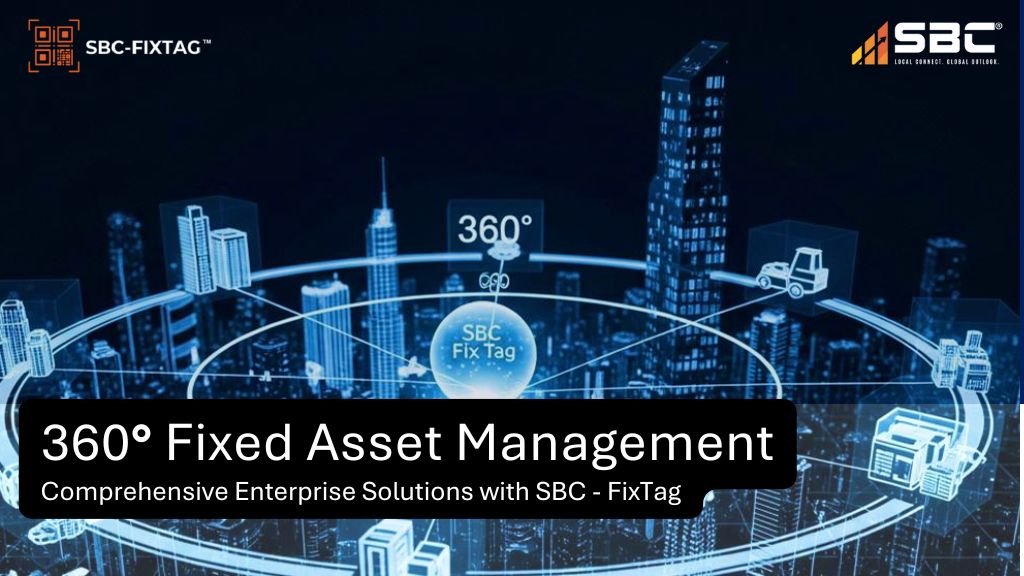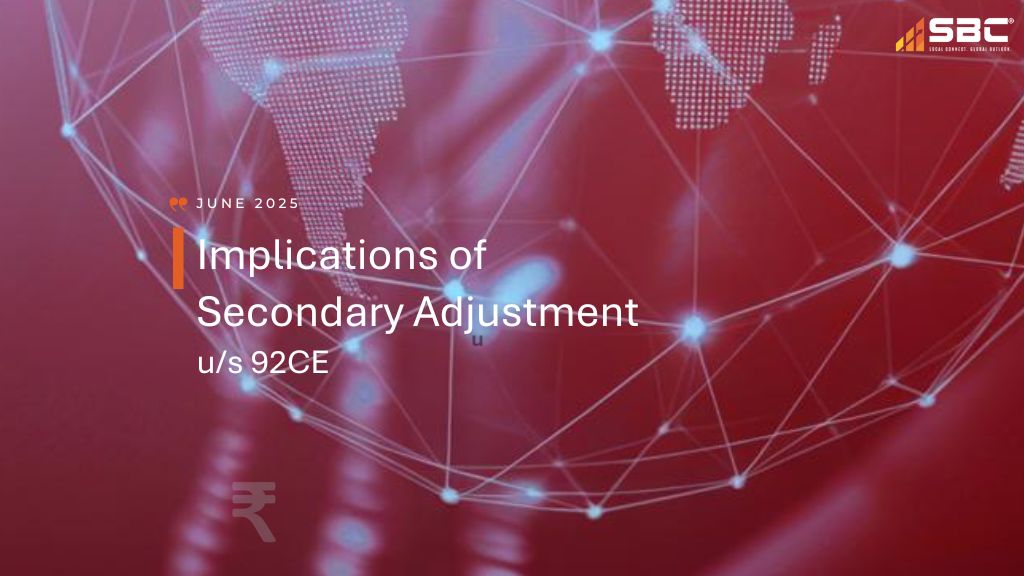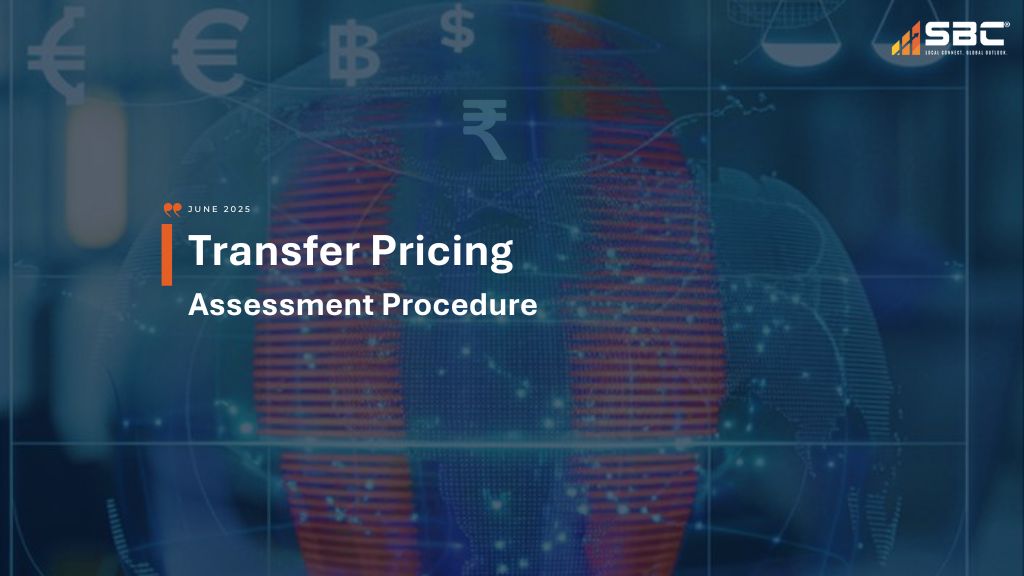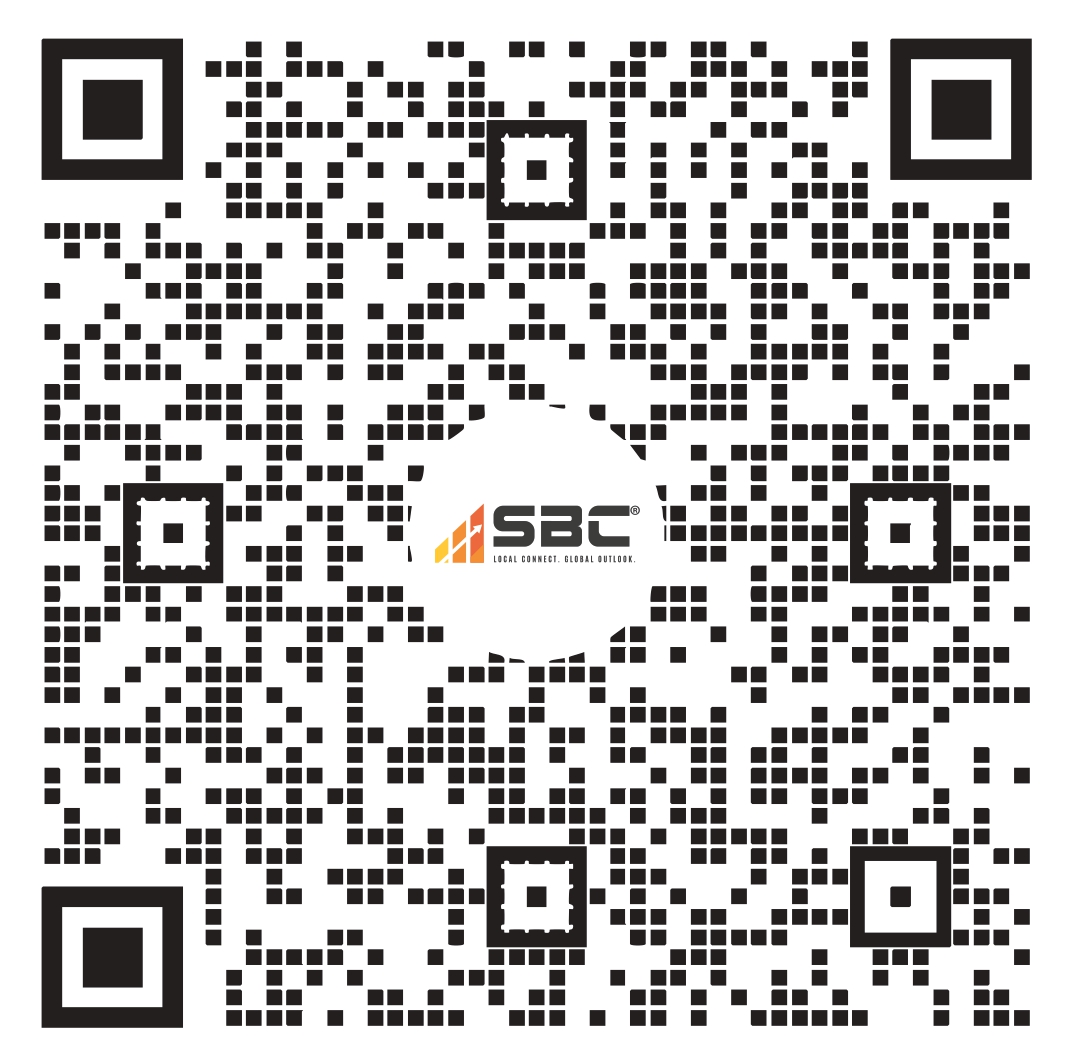SBC - Tax Alert e-DRS September 2024
Home > SBC – Tax Alert e-DRS September 2024
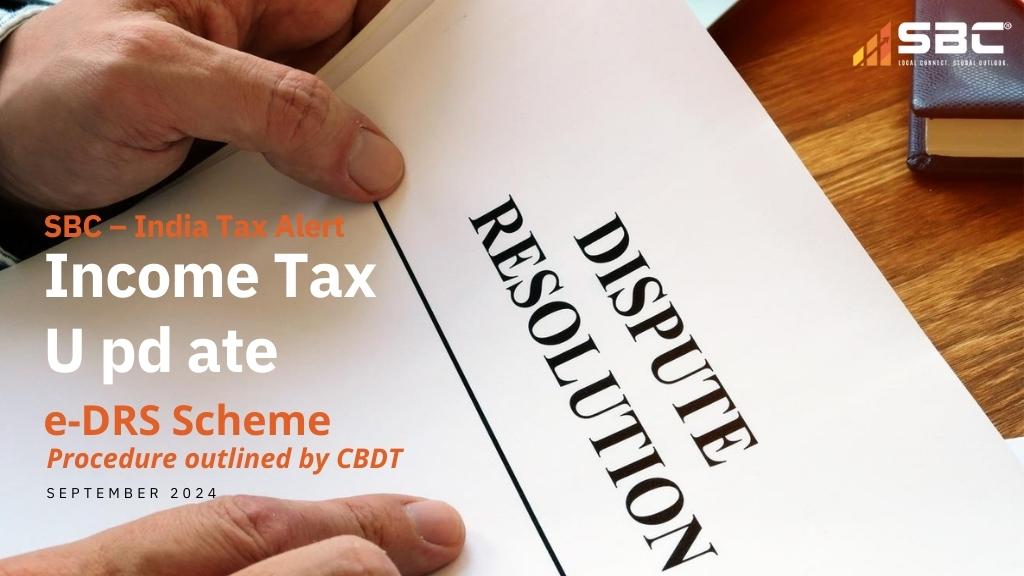
September 9, 2024
CBDT’s e-Dispute Resolution Scheme:
The Central Board of Direct Taxes (CBDT) has recently enabled the procedure for its e-Dispute Resolution Scheme, 2022 (e-DRS) via a press release dated 30-Aug 2024, in line with Section 245MA of the Income-tax Act, 1961 (IT Act).
Earlier in 2022, the income tax (IT) department had notified this scheme under Section 245MA of the IT Act, to reduce tax litigation and disputes.
This scheme aims to minimize litigation and offer relief to taxpayers by providing a streamlined electronic platform for dispute resolution. The scheme is particularly beneficial for smaller disputes where litigation costs and processes may be burdensome for taxpayers
SBC is pleased to present its Tax Alert summarizing the key features of the scheme and the procedure now notified. While the scope of the scheme appears limited, it is essential to understand the features of the scheme so that a taxpayer can diligently decide between:
a) Vivad Se Vishwas Scheme, 2024 (VSVS)
b) e-DRS
c) Normal Appeal Mechanism
Key Features of the e-DRS:
Eligibility:
Taxpayers are eligible to apply for the scheme if the returned income does not exceed ₹50
lakh for the relevant assessment year and the aggregate variation in the tax order (including
draft orders) does not exceed ₹10 lakh (Specified Order).
Ineligibility:
1.Assessees involved in search or survey cases.
2.Cases based on information received under international agreements (Section 90 or 90A).
3.Taxpayers who have been prosecuted for offenses under the Income-tax Act or other criminal laws as mentioned in Section 245MA.
Process outlined by:
1.Taxpayers can file an application electronically using Form 34BC on the Income-tax e-filing portal within one month of receiving a specified tax order.
2.If an appeal is already pending before the Commissioner of Income-tax (Appeals) [CIT(A)] or the Specified Order has been passed on or before 31-Aug-2024 and the time limit for filing appeal with CIT(A) has not been lapsed, the application should be filed by 30-Sep 2024.
3.A fee of INR 1,000 must be paid before making the application.
4.Upon receipt of order from the Dispute Resolution Committee (DRC), the Assessing Officer (AO) has to pass final assessment order for draft assessment order applied or modify the assessment order, in other cases
5.AO has to pass the order in conformity with directions of the DRC within 1 month
Powers of the DRC:
1.The DRC can modify variations in tax orders.
2.It may reduce or waive penalties and offer immunity from prosecution provided the applicant has paid the tax due on the returned income and co-operates with DRC.
3.Orders must be passed by the DRC within six months from the date of admitting the application.
4.Decisions shall be by majority of the members of a DRC.
List of Jurisdictional Committees:
DRCs have been established across 18 jurisdictions in India. The complete list and contact
information are available on the Income-tax e-filing portal.
Constitution of the DRC:
• 2 retired officers from the Indian Revenue Service (Income-tax), who have held the post of Commissioner of Income-tax or any equivalent or higher post for five years or more; and
• 1 serving officer not below the rank of Principal Commissioner of Income-tax or Commissioner of Income-tax as specified by the Board.
The members shall be appointed by the Central Government for a period of three years.
SBC Comments and how can it assist:
Pros:
• Quick Resolution: Faster resolution of disputes, with a mandate for decisions within six months.
• Relief from Penalty/Prosecution: The scheme provides for the waiver or reduction of penalties and immunity from prosecution in certain cases.
• Electronic Filing: Convenient e-filing system reduces paperwork and eliminates physical interaction with tax officials
Cons:
• Limited Scope: The orders covered are only where the returned income is below 50 lakhs (where return is filed) and the variation is up to INR 10 lakhs
• No Further Appeal: Once the DRC decision is accepted, no further appeal is allowed. The only legal recourse available is through a Writ Petition.
• Uncertainty in Initial Implementation: As the scheme is relatively new, there is some uncertainty regarding how favourable the committee’s decisions will be towards taxpayers considering the orders are not appealable. It may be prudent to wait and observe how the scheme is implemented before opting for it.
Conclusion:
The e-Dispute Resolution Scheme, 2022 offers a timely opportunity for eligible taxpayers to resolve smaller disputes efficiently. However, the inability to appeal further after opting for this scheme and uncertainty around its practical application should be carefully considered before proceeding. This scheme shall however be beneficial for cases where there is risk of penalty and prosecution though the tax impact is limited.
Taxpayers should evaluate their position, consult their tax advisors, and consider whether this scheme aligns with their dispute resolution needs (along with the alternative options that are available currently available VSVS v/s e-DRS Appeal Mechanism.
How can SBC assist?
• Analysing the eligibility under the Scheme
• Evaluation of options – VSVS v/s e-DRS v/s Appeal Mechanism
• Filing and processing of the application
• Representation and liaising with the tax authorities
Verify Email
Verify your email address below to download the PDF

